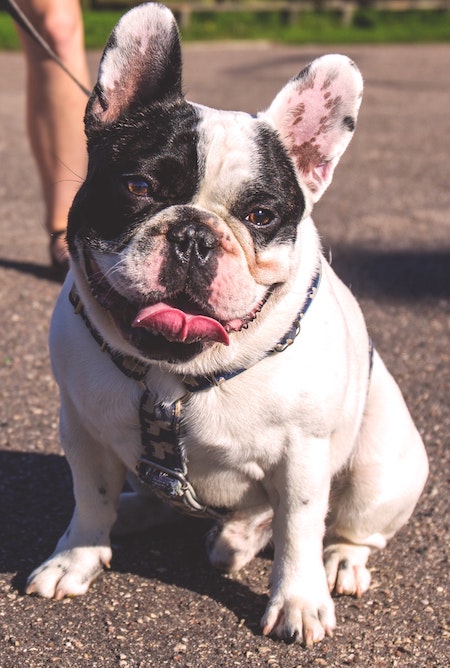
As a dog bite expert witness, I have never been involved in a lawsuit in which the offending animal was a French bulldog. And in my practice as an animal behaviorist in Los Angeles, rarely have I ever received a call from an owner complaining about human directed aggression in a French bulldog. Nonetheless, some Frenchies may become aggressive in certain circumstances. For example in a previous post I described an incident in which supposedly several French bulldog mixes may have been involved in a fatal dog attack.
There is a substantial peer-reviewed animal behavior literature on human directed aggression in dogs. In this literature, the French bulldog has never been singled out as breed possessing strong tendencies for human directed aggression. Instead, peer-reviewed literature identifies Jack Russell terriers, Chows, and Daschunds as the breeds most likely to bite humans. However, it is important to realize that human directed aggression can happen in any dog regardless of breed.
French bulldog owners might find of interest recent correspondence I received from an owner about the aggressive behavior problems they were having with their Frenchie.
Correspondence to dog expert Dr. Polsky about human-directed aggression in a French bulldog
“We are looking for a dog behaviorist that deals with aggression and possibly mental health issues to help us understand what the problem is with our Frenchie and how best to treat him going forward. He is a 13 month old neutered male. He has shown aggression towards both my wife and I and has drawn blood multiple times. After the “episode” he is often sheepish and tired and looks sorry and sad.
The aggression isn’t totally random so we have identified some triggers that we can stay away from but obviously the issue is still there and we are worried that he could attack a house guest for doing something fairly innocuous. When he does attack there is no prior warning, it is literally a zero to 100mph attack.”
Dr. Polsky’s response
This behavioral problem should be taken seriously given the early onset of the dog’s aggressive responding and the fact that this Frenchie has already been bitten and drawn blood on several occasions. Fortunately, much is known about how to behaviorally treat human directed aggression in dogs. In the current instance, given the owners already know of some “triggers”, and important first step would avoid those circumstances in which these triggers may be present.
Reinforcement of the dog’s aggressive responding needs to be avoided. Concomitantly, the owner needs to rule out medical issues that might be associated with the problem (e.g. low thyroid). The owners then need to consult with a qualified animal behaviorist (note the field is rife with self-titled and poorly qualified “animal behaviorists”) to initiate a behavioral modification program. Obedience training (i.e. heel, sit, stay, etc.) is not likely to have much impact on lessening the problem. Drug therapy might be considered to augment behavior modification but this intervention by itself will not solve the problem.
Based on the little I know about this case, my gut feeling is the prognosis would be good provided the owners intervene as quickly as possible (to prevent further reinforcement of the response) followed by competent instruction in the techniques of counter-conditioning along with other aspects of behavior modification. Intervention with these methods is often successful. However, they take time to implement. Dedication by the owner is needed. The International Association of Animal Behavior Consultants maintains a directory listing individuals specializing in the treatment of human directed aggression in dogs.
More about human directed aggression in dogs
